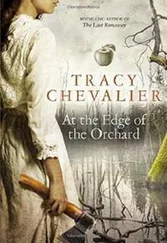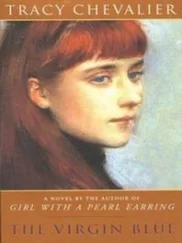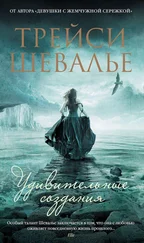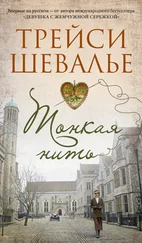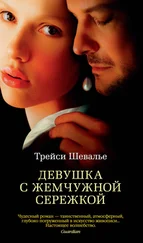No one ever said Christian duty would be easy.
I don’t know why Lavinia was so keen on going to the library opening. She seemed to think I would be thrilled to go as well, but she has confused celebration with function.While I am of course glad we are to have a local public library, I was more interested in borrowing books than in the ceremony. Lavinia is just the opposite-she has always liked parties more than I do, but she cannot sit still in a library for five minutes. She does not even like books much-though she is fond of Dickens, of course, and she and her mother like to read aloud Sir Walter Scott. And she can recite some poems-Tennyson’s “Lady of Shalott” and Keats’s “La Belle Dame sans Merci.”
But to please her I said I would go, and Mrs. Waterhouse somehow persuaded Mummy to come out with us-the first time she has been out at all since she was ill. I do wish she had worn something a little gayer-she has so many beautiful dresses and hats, but she chose a brown dress and a black felt hat trimmed with three black rosettes. She looked like a mourner among partygoers. Still, at least she came-I was pleased just to walk with her.
I do not think she understood very well where the new library is. Daddy and I had often gone on a summer evening to inspect the progress of the building, but Mummy had never come with us. Now as we turned into Chester Road from Swain’s Lane she grew very agitated at the sight of the southern wall of the cemetery, which is bounded by Chester Road. She even clutched my arm, and without quite knowing why, I said, “It’s all right, Mummy, we aren’t going in.” She relaxed a little, though she held on to me until we had passed by the southern gate and reached the crowd outside the library.
The library is a handsome brick building with tan stone trimmings, a front porch with four Corinthian columns, and side sections with high arched windows. For the opening the front was decked out with white bunting, and a small platform placed on the front steps. Lots of people were milling about on the pavement and spilling into the street. It was a windy day, making the bunting shake and men’s bowlers and women’s feathers and flowers fly off.
We had not been there long before the speeches began. A man stepped onto the platform and called out, “Good afternoon, ladies and gentlemen. It is my great pleasure, as chairman of the Education and Libraries Committee of the St. Pancras Borough Council, to welcome you to this most auspicious occasion, the opening of the first free library in the borough as the first step in adopting the Public Libraries’ Acts in St. Pancras.
“We are indebted to the Alderman T.H.W. Idris, MP, and late mayor, for his successful endeavor in getting Mr. Andrew Carnegie, of Pittsburgh of the United States, to give forty thousand pounds for the purpose of the adoption of the Acts-”
Just then I felt an elbow in my ribs. “Look!” Lavinia hissed, pointing. A funeral procession was coming along Chester Road. The chairman on the platform stopped speaking when he saw the carriages, and the men in the crowd removed their hats while the women bowed their heads. I bowed mine as well but looked up through my lashes, counting five carriages behind the one carrying the coffin.
Then a great gust of wind made the women all grab at their hats. Lavinia and Ivy May and I were wearing our green school berets, which usually stay snug on our heads, but Lavinia pulled hers off as if the wind had loosened it, and tossed her hair and shrugged. I’m sure she did it just to show off her curls.
The undertaker’s men walking alongside the front carriage clamped their hands on their top hats; one blew off anyway and the man had to run after it in his long black coat. The horses’ black plumes were swaying and one horse whinnied and bucked as the wind got up its nose, so that the driver had to crack his whip, making some ladies scream, and halting the procession. Mummy trembled and clutched my arm.
The wind had loosened the bunting on the library so much that the next gust caught a length of it and blew it up in the air. The long white cloth sailed over our heads and did a kind of dance over the funeral procession, until suddenly the wind dropped and the bunting fell, landing across the carriage that carried the coffin. The crowd gasped-Lavinia of course screamed-and the nervous horse bucked again.
It was all terribly confusing. But above the shouts, the wind, and the whinnying horse, I heard a woman laugh. I looked around and saw her standing on the edge of the crowd, dressed entirely in white, with a great deal of lace trim which fluttered so that she looked like a bird. Her laugh was not loud exactly, but it penetrated through everything, like the rag-and-bone man’s voice as he walked along our street calling out, “Any old iron!”
Mr. Jackson came out from the cemetery gate and ran up to pull the cloth off the carriage. “Drive on!” he called. “Quickly before the horses bolt!” He ran back to the gate and swung it open, beckoning to the lead carriage. After the last carriage had passed inside the cemetery, he swung the gate shut, then picked up the bunting. As he began folding it he gazed at the crowd in front of the library, saw Mummy, and stopped folding the cloth. Mummy jerked as if someone had tapped her on the shoulder, and dropped my arm.
Then the chairman stepped down from the platform and crossed the road to retrieve the bunting. Mr. Jackson was forced to turn to him and Mummy suddenly drooped. Another gust of wind blew through the crowd and she looked as if she might topple. In a moment the laughing woman was at her side, casually taking my mother’s arm and holding her steady.
“Quite a show here, isn’t it?” she said with another laugh. “And the speeches have barely begun!”
She was a small woman, shorter than Mummy but with her shoulders thrown back in a way that made her look as confident as a taller woman. She had big brown eyes that seemed to sit right on the surface of her face so that you could not avoid their stare. When she smiled a tooth showed at the side of her mouth, reminding me of a horse baring its teeth.
I knew immediately that I would not like her.
“I am Caroline Black,” she said, holding out her hand.
Mummy stared at it. After a moment she took it. “Kitty Coleman,” she said.
I was horrified to recognize the name, though Mummy clearly didn’t. Caroline Black was a suffragette who conducted a long-running battle with various skeptical gentlemen about the subject of votes for women on the letters page of the local paper.
Daddy has been very scathing of the suffragettes. He says the word sounds like the term for a sort of bandaging technique developed in the Crimean War. The suffragettes have been chalking signs for their meetings on the pavements near us, and Daddy has occasionally threatened them-possibly even Caroline Black herself-with buckets of water.
The chairman had begun speaking again. “… The council has provided an open door through which every inhabitant of St. Pan-eras can enter without fee or without challenge to enjoy the treasures of literature enshrined and stored in this building.”
The crowd began to applaud. Caroline Black did not clap, though, and neither did Mummy. I looked around for Lavinia, but couldn’t see her. Mrs. Waterhouse and Ivy May were still close by, and I followed Ivy May’s gaze across the road. Lavinia was standing by the cemetery gate. She saw me and beckoned, pulling at the gate to show me that it was not locked. I hesitated-t did not want to leave Mummy alone with Caroline Black. On the other hand, the speeches were dull, as I had known they would be, and the cemetery would be much more interesting. I took a step toward Lavinia.
Читать дальше
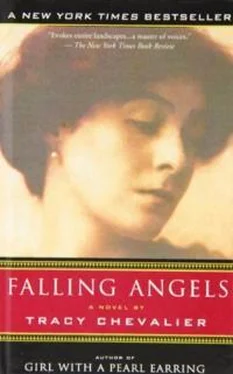
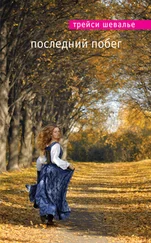
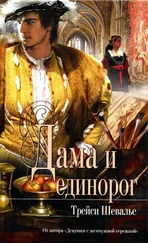
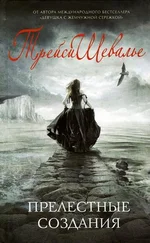
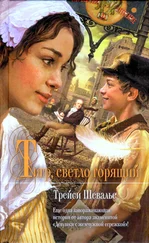
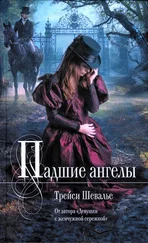
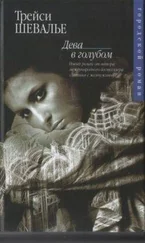
![Трейси Шевалье - Тонкая нить [Литрес]](/books/386177/trejsi-shevale-tonkaya-nit-litres-thumb.webp)
